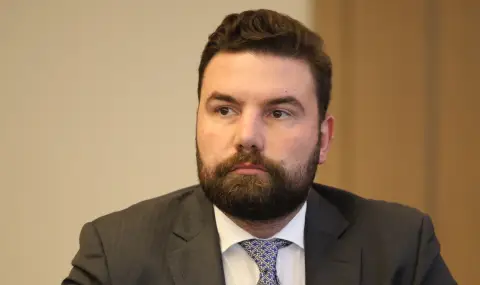Raising the minimum wage helps the revenues in the budget of the NHIF. This was stated to the BNR by the health expert from the Expert Club for Economy and Politics Arkady Sharkov.
"This is a mechanical contribution increase. It is expected, unfortunately, such things are also being discussed in the fringes of power, to move towards increasing the maximum insurance income. This is because of the main problem facing the country – either it raises taxes or the deficit gets bigger ie. the expense must be compensated in some way. There is one increase in this direction which is mechanical. The problem is that it is again at the expense of those working in the system. The income that comes in from each one working in the private sector is much greater in quantity and in amount than the funds that the state allocates to the 9 groups of people it provides for, among them the biggest users of the system – children and pensioners", he explained.
According to him, it is good to think about the state deducting its tax in this direction, so as not to transfer everything solely to the workers.
At the moment there is money, the question is how it will be spent, the expert was categorical in an interview for the program "Above all".
He reminded of the number of lawsuits filed against the NHIF for payment of over-the-limit activity. This, in his words, puts the Fund itself in front of a complex case study of when, how and if it will be able to reschedule these payments over time, because at the end of each year they accumulate. According to data from the Health Insurance Fund, currently the overspend in hospital care is about BGN 306 million.
"Will an update be required – is again in question. In the summer, there were signs that an update would be needed. At the moment, before the official presentation of the budget, the words that no update is necessary are more relevant, but purely political. In my opinion, pragmatically – an update will be required".
In his words, for the next year, it is good to set the decision that the budget for drugs for home treatment will be around 380 million to cover the needs of the population.
"The case with the word "free" is that in the end someone has to pay the bill. In recent years, many actions have been taken in this direction. To a considerable extent, these decisions are populist. On the one hand, they are positive because people should pay less. But each such account must be made in the previous year so that all stakeholders in the system are ready to prepare for these changes.
The other important thing, according to Arkady Sharkov, is to what extent the state will be able to "relax the belt", given that we are also striving to enter the Eurozone:
"This is why the signals from structures such as the NHIF are precisely in this direction, that belts will be tightened".
He believes that the Treasury budget is not intended as a health investment budget, but rather as an accounting account. According to him, much more serious information campaigns are needed for people to visit a doctor more and more on time in order to detect diseases in time.
